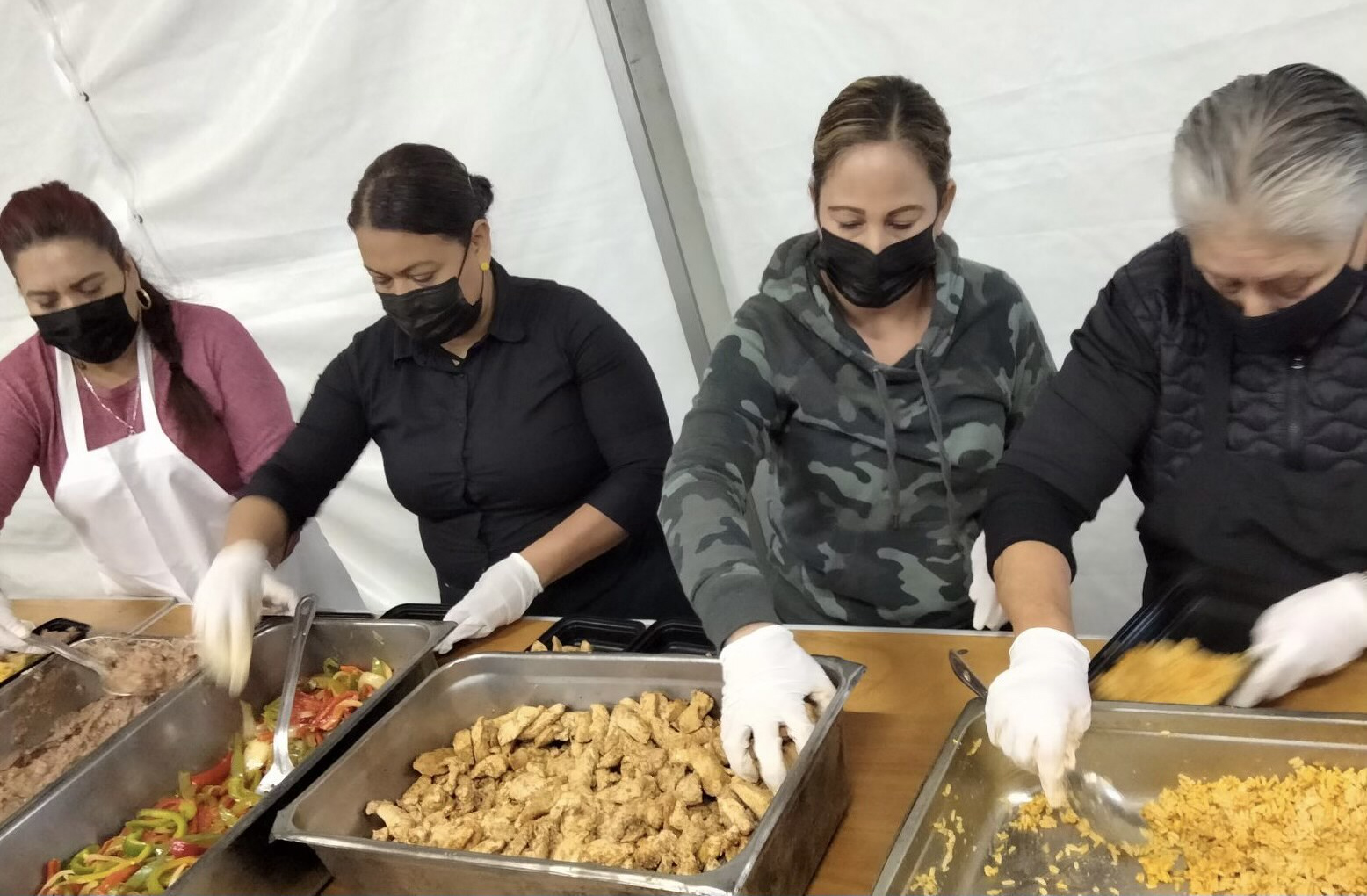
When the pandemic hit in March 2020, celebrations and gatherings came to a screeching halt. For event venues like The Grand, this meant bookings were canceled or postponed, sending them looking for alternative revenue sources to keep the lights on.
A majority of the venue’s revenue comes from weddings, most of which were canceled or postponed.
“Everyone was going after anything they could do,” said Daniel D’Sa, director of The Grand. “Everyone was in survival mode.”
But D’Sa said he wasn’t just looking for a way to substitute revenues; he also hoped to help fellow Long Beach residents. So he began reaching out to the city, calling over a dozen times, asking whether there was anything he and his team could do to provide support.
“I just kept saying: This is Dan at the Grand, we want to get involved,” he remembers. “We weren’t looking at things as an opportunity to make money, we were looking at it as an opportunity to get involved.”
Fast forward to today, The Grand has been providing meals at the city’s Roomkey and Homekey sites, hotels turned into temporary housing for formerly homeless residents, for over a year. For D’Sa, the experience has been emotional, and he isn’t planning to quit anytime soon.
“I would do this and only this for the rest of my life and be 100% content,” he said. “I love doing weddings, I love doing large celebrations, I love doing fundraisers—but emotionally, this has been the most impactful thing I’ve ever done.”
The service, which delivers three meals to each resident at the sites per day, was crucial to keeping people safe during the pandemic, said Homeless Services Officer Paul Duncan. At $5 to $6 per meal, The Grand provided services at an affordable rate.
“Providing food to people at the site, so that they have something to eat, was actually really vital for people to practice safer at home and self isolate,” he said. “If you want them to stay there, you gotta feed them.”
The food, which D’Sa said is modeled after the menu The Grand normally offers at its events, also helps contribute to residents’ overall well-being, Duncan noted.
“Just making sure that people get quality food at the site does make a significant difference,” he said. “It still makes an impact in our ability to engage people.”
Michele Sommers, one of the residents of the city’s supportive housing site at the former Best Western on Long Beach Boulevard, said she was shocked when she learned that food would be delivered to the site.
“Not only are they giving us food, they’re giving us good food,” she said. Sommers still remembers her first breakfast at her new temporary home: a cheese, egg and ham croissant.
Being served quality food, she said, has helped her sense of self-worth. “It makes me feel better about myself—like: OK, I’m deserving of this,” Sommers said. “If you’re treated with class, you must have it.”
